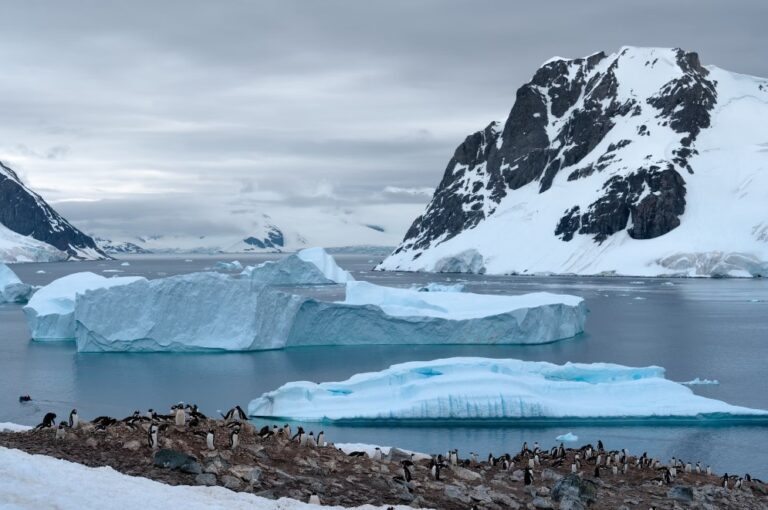A missing piece the size of Argentina or the areas of Texas, California, New Mexico, Arizona, Nevada, Utah and Colorado combined. As the Northern Hemisphere is smothered by a record-breaking summer heat wave, a new alarm has gone off for Antarctica.
Antarctic sea ice has reached unprecedented lows for this time of year. By mid-July, the extensive ice covered an area 2.6 million square kilometers less than the average recorded from 1981 to 2010. This represents a decline of about 1.6 million square kilometers from the previous winter minimum set in 2022, which was 1.9 million square kilometers.
Table of Contents
Growing risks for Antarctica
The risks of continued sea ice reduction in Antarctica are high. Until a decade ago, Antarctica was thought to be immune to climate change. But today data show that sea ice is shrinking at an alarming rate.
This could have serious consequences for the ecosystem, with penguins and seals possibly finding themselves homeless. In addition, reduced sea ice could lead to sea level rise, which could threaten coastlines and coastal communities.
One only has to look at the NSIDC’s real-time updated graph to realize the scale of the environmental disaster. On July 28, 2023, the surface area of the South Pole is reported to be 14,376 km².
By contrast, exactly one year ago, on July 28, 2022, Antarctica had an area of 15,620 km². On July 28 relative to the period 1981-2010 it was an impressive 16,787 km².
These alarming figures signal a disturbing trend toward rapid melting of Antarctic ice, with potential significant impacts on the global climate situation.
Alarming ice losses at the Poles
If the situation in Antarctica is critical, it is no better at the North Pole. During the first half of July, the extent of Arctic sea ice decreased at an almost average rate of 81,800 square kilometers per day. Sea ice in the Arctic is about 1.31 million square kilometers below the baseline period from 1981 to 2010.
Wanting to make a comparison similar to the previous one, if the South Pole has lost an area of ice comparable to that occupied by Argentina, then the North Pole has lost an area of ice greater than that of Peru (a country covering 1,285,000 km²).
Melting glaciers: the consequences on human life
Melting glaciers is a long-standing problem that is having an increasingly significant impact on human life. The consequences are manifold and extend to several areas, including the economy, the environment, and health.
In the economic sphere, melting glaciers are causing a reduction in fisheries, due to changing ocean currents and fish behavior. This is leading to a loss of jobs and income for fishing communities.
Environmentally, melting glaciers are contributing to sea level rise, which threatens coastlines and coastal communities. In addition, melting glaciers are releasing large amounts of carbon dioxide into the atmosphere, which contributes to climate change.
In the health arena, melting glaciers are promoting the spread of new diseases, due to the release of viruses and bacteria that had been trapped in the ice for millennia.
The consequences of melting glaciers are therefore multiple and serious. Rapid action is needed to reduce greenhouse gas emissions and slow climate change to mitigate its effects.
Read also: Melting glaciers, a major problem for humanity: effects and possible solutions












